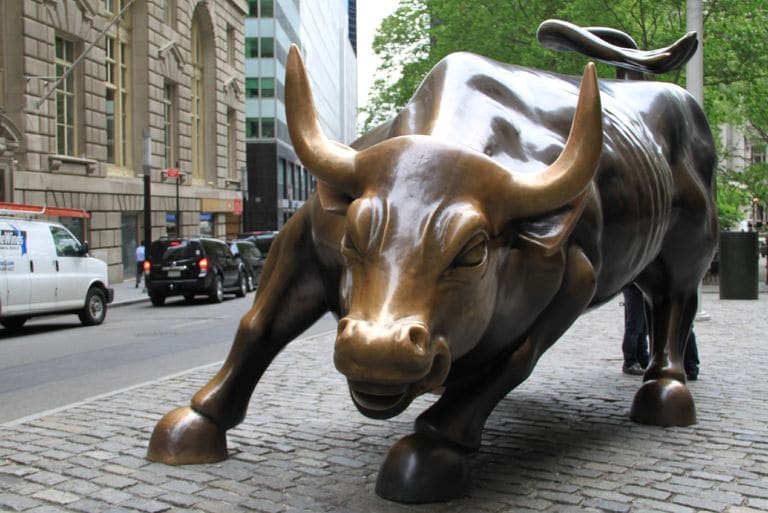European markets rolled over sharply in the aftermath of the release of today’s US inflation numbers as both measures came in hotter than expected with the FTSE100 hitting a new 20 month low, before pulling sharply off its lows.
Europe
Yesterday the big rise in gilt yields prompted a slide in banks and housebuilders. Today’s slide in those same yields in the hope of a UK government tax U-turn has seen those same counterparties rebound with NatWest, Lloyds, Barratt Developments and Persimmon all seeing decent gains after yesterday’s losses, while sterling has also rallied strongly.
Taylor Wimpey shares have fallen to new 9-year lows after going ex-dividend, having also seen heavy losses yesterday on concerns over the effect that higher yields would have on future mortgage and housing demand. Tesco, WPP and Spirax Sarco are lower after also going ex-dividend.
British Airways owner IAG shares have surged towards the top of the FTSE100 after reporting that trading in Q3 has been better than expected and that they expect pre-exceptional operating profit to be in the region of €1.2bn.
Entain shares have also edged higher after the Ladbrokes and Corals owner says that NGR rose 2% during Q3 while reaffirming its full year EBITDA guidance of between £925m and £975m. With the World Cup in Qatar beginning next month the company says that it is hopeful that the timing of this will help it meet and possibly exceed its EBITDA target.
With the share price already at 10-year lows, easyJet has had a poor year, and today’s Q4 trading update has done little to change that.
After posting a headline loss before tax of £114m in Q3, easyJet today announced that its full year group headline loss before tax would be between £170m and £190m, which includes incremental disruption costs of £75m, mainly from the operational issues experienced in Q3, and FX costs of £64m.
Fuel costs for H1 next year are 69% hedged, up from 60% hedged at the end of Q3 with the airline saying it expects to fly around 20m seats in Q1 of 2023, a 30% increase year on year, and back to pre-pandemic levels.
This seems optimistic given that they can barely cope with their current capacity at some airports.
US
US markets opened sharply lower, with the Nasdaq 100 leading the losses after US core CPI came in hotter than expected at 6.6% and a new 40 year high, as markets start to price the prospect of not only a 75bps rate hike in November, but a 75bps move in December as well.
The Nasdaq 100 has fallen to its lowest levels in over 2 years, while the S&P500 has fallen to its lowest levels in 20 months at 3,500, retracing 50% of the entire up move from the 2020 lows, at 2192 and the highs this year at 4,818.
The latest weekly jobless claims numbers were almost a postscript coming in at 228k, and in line with expectations, but also underscoring that whilst inflation is high the labour market continues to hold up well.
With the Nasdaq 100 leading the losses tech companies like Nvidia, and AMD are on the backfoot, after one of the world’s biggest chipmakers TSMC cut its capex spending and warned on the outlook. We’ve also seen weakness in consumer staples with losses for the likes of Amazon and Home Depot.
The hot or sticky CPI report, however you choose to characterise it, also clobbered crypto assets sending bitcoin lower, and also sending the likes of Coinbase, MicroStrategy and Marathon Digital lower.
FX
Any thoughts that US inflation might be starting to settle down were dashed this afternoon after US core CPI rose more than expected in September, rising to a new 40 year high of 6.6%, and by more than expected.
Headline inflation did slip back to 8.2% but what these numbers are telling us is that US inflation is proving a lot stickier than expected and therefore we can not only expect another 75bps in November we could be in the frame for a 75bps move in December as well unless price pressures start to show signs of easing heading into the winter. Any prospect of a Fed pivot looks further away than ever.
Consequently, the US dollar which had been trading lower prior to the numbers reversed course, rallying sharply across the board.
The only currency to outperform the US dollar today has been the pound which has moved above 1.1200 against the greenback on hopes of a government U-turn on their tax plans. It has also rallied strongly against the euro to its highest levels in over a month and in so doing is now higher than it was before the mini budget.
UK gilt yields are also retreating on the same basis, although Downing Street are denying any talk that they are about to reverse course further, which means today’s gains could prove to be fleeting if market optimism proves to be misplaced.
Commodities
Having fallen for three days in a row, crude oil prices initially edged higher after the IEA warned that the OPEC+ policy of production cuts could tip the global economy into recession, if it forces prices a lot higher from current levels.
With the economic outlook already looking increasingly bleak it’s a highly questionable strategy on the part of OPEC+ and could well blow up spectacularly if in their desire to support prices they accelerate further declines. The early gains in prices soon gave way to a sell off after US core CPI surged to a new 40 year high, driven primarily by services inflation, as slowdown concerns continue to rise, and the US dollar rebounded.
Gold prices have also taken a beating on the back of the US CPI print, and while it is notable that it is still above its September lows, the move higher in yields and increased prospect of more aggressive rate rises could see these levels revisited.
Volatility
UK bank stocks tumbled lower yesterday morning as mounting recession concerns plus the potential impact on investments should the Bank of England follow through with its statement about removing liquidity support by the end of the week hold true. CMC’s proprietary basket of shares covering the sector tumbled to lows not seen since March by mid-session, driving one day volatility to 50.25% against 42.89% on the month.
Hong Kong’s Hang Seng index remains somewhat turbulent with early gains on Wednesday proving to be short lived. China’s resolve to maintaining its zero COVID approach appeared to be the key driver in scuppering any form of rebound here and the down trend was once again in play by the close. Daily volatility on the index sat at 46.17% against 30.35% on the month.
US Heating Oil prices have been trading in a range of around 10% over the last week and yesterday was no exception. There are conflicting signals over price action here, with the EIA noting US consumers will pay more to heat their homes this winter, with this being offset to an extent by the impact recession could have on demand. The commodity ultimately closed almost 1% lower yesterday, but daily vol advanced to 63.75% against 52.53% on the month.
And finally, cryptos have been looking subdued of late but price action on Tron ticked higher on Wednesday. One day vol here printed 37.83%, up from the 30.97% recorded on the month..
Disclaimer: CMC Markets is an order execution-only service. The material (whether or not it states any opinions) is for general information purposes only, and does not take into account your personal circumstances or objectives. Nothing in this material is (or should be considered to be) financial, investment or other advice on which reliance should be placed. No opinion given in the material constitutes a recommendation by CMC Markets or the author that any particular investment, security, transaction or investment strategy is suitable for any specific person. The material has not been prepared in accordance with legal requirements designed to promote the independence of investment research. Although we are not specifically prevented from dealing before providing this material, we do not seek to take advantage of the material prior to its dissemination.








